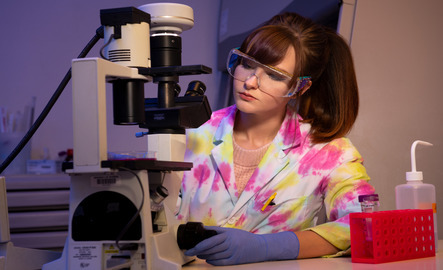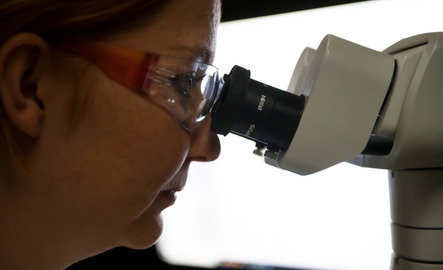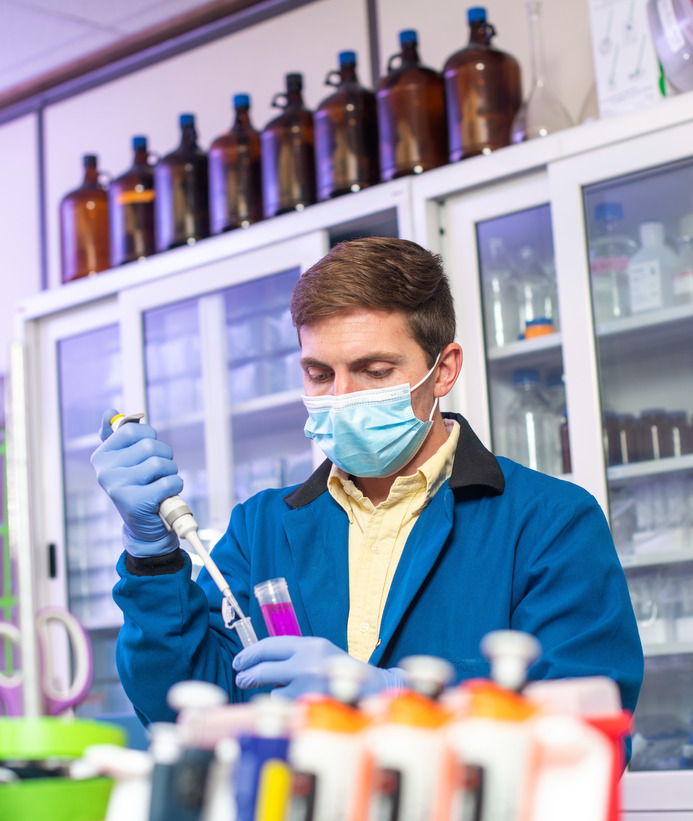Learn More About the Minor in Biomedical Engineering
The biomedical engineering minor is a completely customizable program. Students can
select the courses that align with their interests or choose from preselected paths
designed for certain majors, including chemical, mechanical and electrical engineering.
As part of the biomedical engineering program, students have the opportunity to learn
from notable faculty and pursue undergraduate research opportunities.

The University of Wyoming allows students to specialize in biomedical engineering
while pursuing a foundational degree in chemical, mechanical or electrical engineering.
Students who are not engineering majors are also welcome to pursue this minor.

What Can You Do With a Biomedical Engineering Minor?
Many biomedical engineering students go on to pursue degrees in medicine, health sciences and, of course, biomedical engineering. Biomedical engineers contribute to medical technologies in a variety of areas including diagnostics, therapeutics, imaging, bioinformatics and rehabilitation.
Here are some of the job titles our graduates have held:
- Biomedical Engineer
- Principal Scientist
- Consultant
- Project Manager
- Medical Laboratory Technician
- Microbiology Technologist
- Business Development Manager
- Senior Research Scientist
- Manufacturing Chemist
- Assistant Professor
Many biomedical engineering students additionally go on to pursue medical school and careers as physicians.
- Medtronic
- University of Colorado Health Sciences Center
- Colorado Department of Public Health and Environment
- University of Wyoming
- TASC, Inc.
- 3D Systems Corporation
- Louisiana Tech University
- Precision Biopsy, LLC
- Vector Laboratories, Inc
- Agilent Technologies
- The University of Texas Southwestern Medical Center
Biomedical engineers apply engineering principles to develop technologies that improve healthcare and save lives. They design and improve medical devices like pacemakers, prosthetics and imaging equipment, as well as create software, artificial organs and rehabilitation tools. Working closely with healthcare professionals and researchers, they ensure these innovations are safe, effective and tailored to patient needs. In short, they bridge the gap between engineering and medicine to advance human health.
UW has several engineering majors that pair well with the biomedical engineering minor.
These degrees will help you build foundational engineering and science principals
that will lend themselves to the biomedical curriculum.
Inside UW’s State-of-the-Art Engineering Education and Research Building
The Engineering Education and Research Building (EERB) at the University of Wyoming is a cutting-edge facility designed to support hands-on learning, innovative research and student collaboration. As part of UW’s Tier-1 Engineering Initiative, the EERB features advanced labs, project spaces, reconfigurable research areas and industry-grade tools like an expanded drilling simulator. Built with strong support from the Wyoming Legislature and private donors, the facility is student-focused and geared toward real-world problem solving. Alongside the Energy Innovation Center, High Bay Research Facility and Enzi STEM Facility, it positions UW’s engineering programs on par with top-tier institutions nationwide.


